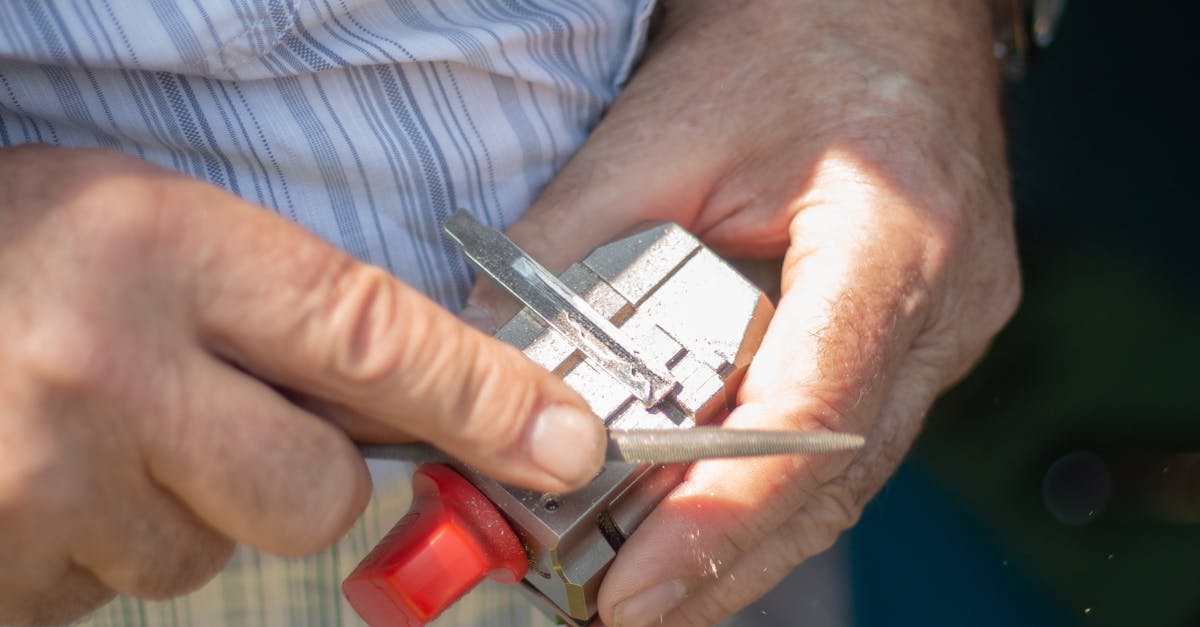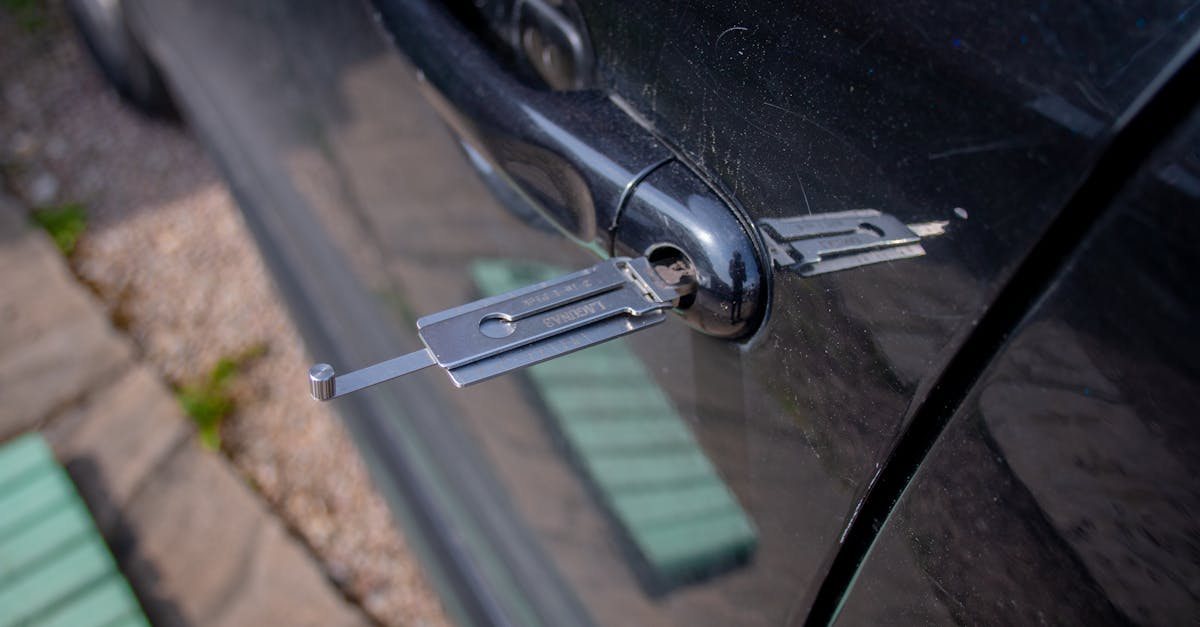
Security Implications of Each Option
The choice between replacing locks and rekeying can have significant security implications for your property. Replacement typically involves installing a brand-new lock, which may offer improved security features that are more difficult to bypass. Older locks may have vulnerabilities that can be exploited, making replacement a more secure option in certain situations. On the other hand, rekeying involves altering the internal mechanism of an existing lock to work with a new key. While this can enhance security by ensuring that old keys no longer function, the integrity of the lock itself remains unchanged. It is essential to assess both options in the context of the current condition and reliability of your locks.
Lock repair may sometimes be a viable middle ground, particularly when dealing with malfunctioning locks that are still relatively new and secure. In cases where the lock is damaged but retains its security features, repair can extend the life of the lock while maintaining overall safety. However, if the lock has been compromised or shows signs of wear, simply repairing it may not be sufficient to ensure adequate security measures. Therefore, property owners should carefully evaluate their locks and consider the potential benefits of both rekeying and replacement as part of an overall security strategy.
Assessing Your Security Needs
When considering whether to replace locks or rekey them, it is essential to assess your security needs carefully. Factors such as the level of risk in your area, the age and condition of your current locks, and any past security breaches should inform your decision. For instance, if your locks are outdated or showing signs of wear, you might benefit more from a comprehensive approach, including lock repair or replacement. Understanding the specific vulnerabilities of your property can guide your choice effectively.
If recent incidents have made you feel unsafe, a thorough evaluation of your lock system is warranted. In some cases, rekeying may suffice for fewer concerns or minor upgrades, particularly if your current locks are still functional. However, significant damage or compromised locks suggest a more aggressive solution like lock repair or replacement might be necessary. Identifying your precise security requirements will ultimately determine the best course of action.
When to Choose Lock Replacement
Lock replacement may be necessary when a lock is severely damaged or beyond repair. In cases where the locking mechanism is compromised or the key no longer functions, opting for a new lock is often the best route. This ensures the security of your property is not only maintained but enhanced. Lock Repair might prolong the life of a locking system, yet it may not address underlying issues that could lead to future failures.
Changing locks is also advisable when upgrading to higher security systems. Modern locks offer advanced features such as smart technology or higher resistance to picking, which outdated locks might lack. For those moving into a new home or property, replacing the locks ensures that only trusted individuals have access, eliminating any concerns regarding previous keys still being in circulation. In some instances, this proactive measure can provide peace of mind that is invaluable.
Signs It's Time to Replace Your Locks
Worn or damaged locks can compromise the security of your property. If you notice difficulty in operating your locks, such as sticking, jamming, or excessive force needed to turn the key, it may signal a need for lock replacement. Continuing to use faulty locks can increase the likelihood of a break-in or other security issues. In such cases, exploring lock repair may only provide a temporary solution rather than addressing the underlying problem.
Another important factor to consider is the age of your locks. Older locks may not meet current security standards. If your locks are dated, replacing them can offer enhanced protection against modern methods of break-ins. Additionally, cosmetic issues like significant rust, corrosion, or visible wear can detract from the overall appearance of your doors. Opting for new locks can refresh the aesthetic of your home while ensuring the security measures are up to date.
When Rekeying is the Best Choice
Rekeying can be an excellent choice in various situations, particularly when the existing locks are functioning well. If there’s been a change in occupancy, such as moving into a new rental property or experiencing a roommate transition, rekeying the locks offers a quick solution to enhance security without the expense of complete lock replacement. This process involves altering the internal mechanism, which means that only the new keys will work in the locks, rendering old keys useless.
In circumstances where locks show some wear or require minor adjustments, rekeying can be a cost-effective way to address security issues. This approach often accompanies services like lock repair, which can ensure that the locks operate smoothly while maintaining the original hardware. By choosing to rekey instead of replacing, homeowners can save money and preserve the integrity of their existing locks, especially if they are relatively new and in good condition.
Situations that Favor Rekeying
Rekeying is often the best choice in scenarios where the existing locks are in good condition but you need to change who has access. This can include situations such as moving into a new home or when you have lost your keys. Engaging in a lock repair can offer a cost-effective solution without compromising security. Rekeying allows you to maintain the same locks while altering the internal mechanism so that old keys no longer work, providing a fresh start with minimal expenditure.
Another situation that favours rekeying is when there is a change in occupancy, like a roommate moving out or a tenant leaving a rental property. Instead of replacing the entire lockset, rekeying can effectively secure the property by ensuring that previous keys can’t be used. This option allows for maintaining the aesthetic and integrity of the original locks while enhancing your security measures at a fraction of the cost involved in full lock replacement.
FAQS
What is the main difference between replacing locks and rekeying them?
Replacing locks involves removing the old lock and installing a new one, while rekeying changes the internal mechanism of an existing lock so that it works with a new key.
Which option, replacing locks or rekeying, is generally more cost-effective?
Rekeying is typically cheaper than replacing locks, as it requires less labour and materials. However, the best choice depends on your specific security needs and the condition of the existing locks.
How do I know if I should replace my locks instead of rekeying?
Consider replacing your locks if they are damaged, outdated, or if you want to upgrade to a higher security standard. Signs such as difficulty turning the key or visible wear may indicate that replacement is necessary.
Are there situations where rekeying is not advisable?
Yes, rekeying may not be advisable if the locks are old, severely damaged, or if you require a different level of security that the existing locks cannot provide.
Can I rekey my locks myself, or should I hire a professional?
While some people choose to rekey their locks themselves using DIY kits, hiring a professional locksmith is recommended for best results, especially if you are unfamiliar with the process.
